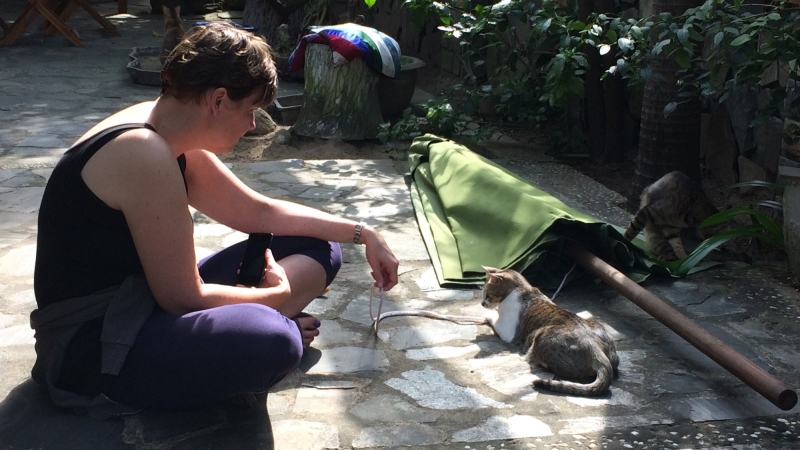Paying a visit to an ethical animal sanctuary or rescue center, can be something to look forward to when you travel abroad. These days, with limited options to go abroad, it might be something to consider to visit one in your own country of residence. Either way, make sure you visit an ethical place. One that is all about the animals, not the visitors. Let me tell you why it is important to visit sanctuaries and how to recognize ethical ones.
Why visit ethical animal sanctuaries or rescue centers?
There are a number of reasons why you should plan a visit local sanctuaries and rescue centers. First of all, to support the good work the people in these sanctuaries are doing. In some rescue centers, you will be able to help out as a volunteer. And of course, your financial donations are more than welcome. Most of the sanctuaries and rescue centers receive no money from the government and completely depend on donations to survive.
The second purpose to visit is education. It will give you the opportunity to learn about animals who need protection and care. These might not be exotic animals if you visit a rescue center near you. They could be farm animals. But you might still learn something. Some people might not even be aware that some species need protection. You can also learn about what is being done to secure a safe existence for the animals, now and in the future.
And last but not least, it's lots of fun being around lovely and cute animals!
The animals are the top priority
Ethical animal sanctuaries and rescue centers have one top priority: the well-being of the animals. Animals have to be able to live in a habitat that resembles as closely as possible their natural habitat. They should be able to roam around freely without visitors interrupting their routines. A sanctuary is a place of rescue for poorly treated and abused animals, where they can spend the rest of their lives in peace. It is not a place for tourists.
If you visit one of these sanctuaries you might not get the view or photo you wanted. But that is the whole point: the animals decide if and when they show themselves to you.
Red Flags when visiting a sanctuary
If you are visiting or planning to visit a specific sanctuary or rescue center, look for signs which indicate things might NOT be okay. If you see any of the following, be aware that it is not an ethical sanctuary:
- It is possible to have direct contact with the animals (washing, feeding, touching, etc.);
- You are allowed to take photo/selfie opportunities with the animals up close (some sanctuaries use baby animals for this purpose.);
- You are able to bathe the animals;
- Animals are chained or tied up to poles or fences to make them more accessible to tourists;
- The sanctuary has a breeding program to keep up its population of cute baby animals to attract tourists, or to sell;
- Animals are kept in cages.
Real sanctuaries invest in the animals and create awareness
The purpose of a real animal sanctuary is to care for the animals and to offer them a safe place to stay for the duration of their "free" lives. A sanctuary should have a resident veterinarian who looks after the animals and takes care of their health and ailments.
Quite often, ethical sanctuaries also have an education center where visitors (tourists and locals) can learn all about these amazing animals. Locals should also have access to knowledge about these animals.
Use accreditations as a guideline to choose ethical animal sanctuaries or rescue centers
There are a number of independent organizations that provide guidelines for animal sanctuaries and issue accreditations to ensure whether the sanctuary you have chosen is a truly ethical enterprise. Have a look at the following websites for more information and where you can find a sanctuary near you:
GFAS (Global Federation of Animal Sanctuaries)
Responsible Tourism towards Animals
Trust your own instincts
The renowned accreditation institutes have not visited all sanctuaries (yet). This does not necessarily mean that the ones without accreditation are not ethical or not worth a visit. The best thing to do is trust your instincts. Get a feel for the place before you go in. Read other people's reviews and read their experiences, for instance on Tripadvisor. If it does not feel right, give the place a miss. Don't spend your money there, but find an ethical sanctuary elsewhere!
More on interesting animals
If you like to read more about interesting and exciting animals, have a look at these articles:




